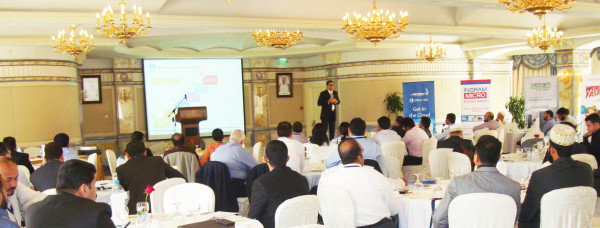- Reshaping the Nation: Critical national news impacting communities and charting a course for future growth.
- Economic Shifts and Their Impact on American Households
- Political Polarization and Its Implications for Governance
- Technological Advancements and the Future of Work
- Social Movements and the Pursuit of Social Justice
- Healthcare Access and Affordability: A National Challenge
Reshaping the Nation: Critical national news impacting communities and charting a course for future growth.
In a rapidly changing world, staying informed about national news is more crucial than ever. These events shape our policies, economies, and daily lives, impacting communities across the nation. Understanding these developments allows citizens to participate more effectively in the democratic process and make informed decisions about their future. The flow of information is constant, and it’s essential to discern credible sources and analyze events thoughtfully, beyond simple headlines.
The focus of this article will be on dissecting key national issues, exploring their complexities, and highlighting their potential consequences. It is intended not simply to report events, but to provide context and foster a deeper understanding of the forces shaping the nation. From economic trends and political shifts to social movements and technological advancements, we aim to offer a comprehensive overview of the vital stories defining our times.
Economic Shifts and Their Impact on American Households
Recent economic indicators paint a complex picture. While unemployment rates remain relatively low, inflation continues to be a persistent challenge, eroding the purchasing power of families across the country. The Federal Reserve’s attempts to curb inflation through interest rate hikes have led to concerns about a potential recession, prompting debates among economists and policymakers. These changes affect not just the financial markets, but the everyday budgets of American households struggling with rising costs for essential goods and services.
The impact isn’t uniform across the country. Certain regions and demographics are disproportionately affected by these economic headwinds. Areas reliant on specific industries, like manufacturing or tech, are particularly vulnerable to downturns. Furthermore, low-income families and those with fixed incomes often struggle the most when prices surge. Government assistance programs and innovative solutions are being explored to mitigate these hardships, but a long-term strategy is still evolving.
Here’s a breakdown of key economic indicators:
| Inflation Rate | 3.7% | 3.2% | Increasing |
| Unemployment Rate | 3.8% | 3.7% | Slight Increase |
| GDP Growth | 2.1% | 2.0% | Stable |
| Consumer Confidence | 101.3 | 99.1 | Increasing |
Political Polarization and Its Implications for Governance
The United States is experiencing a period of heightened political polarization, with increasingly stark divisions between the major political parties. This polarization extends beyond policy disagreements to encompass fundamental values and beliefs, making compromise and consensus-building increasingly difficult. The consequences for governance are significant, leading to gridlock in Congress, difficulty passing legislation, and a decline in public trust in political institutions. Effective governance relies on collaboration and mutual respect, qualities that are becoming increasingly scarce in the current political climate.
This deep division is fueled by several factors, including the rise of social media, the proliferation of partisan news outlets, and the increasing influence of money in politics. Echo chambers online reinforce existing beliefs, while biased media coverage exacerbates tensions. The result is a fractured electorate where individuals are more likely to consume information that confirms their existing biases and less likely to engage with opposing viewpoints.
Here is a list of factors contributing to political polarization:
- The rise of social media and echo chambers.
- The increasing influence of partisan news outlets.
- Geographic sorting, with like-minded people clustering in the same communities.
- The role of money in politics and lobbying.
- Declining trust in traditional media institutions.
Technological Advancements and the Future of Work
Rapid advancements in technology are reshaping the landscape of work, creating both opportunities and challenges for American workers. Automation, artificial intelligence (AI), and machine learning are transforming industries, leading to increased efficiency and productivity, but also raising concerns about job displacement. The need for reskilling and upskilling initiatives is becoming increasingly urgent to prepare the workforce for the jobs of the future. Continuous learning will be essential for individuals to remain competitive in a rapidly evolving job market.
The impact of technology is not limited to traditional industries. The gig economy, driven by platforms like Uber and Airbnb, is growing rapidly, offering flexibility but also raising questions about worker rights and benefits. The rise of remote work, accelerated by the COVID-19 pandemic, has also transformed the workplace, creating new opportunities for work-life balance but also raising challenges related to communication and collaboration, and the importance of broadband access.
The following outlines projected job growth in key technology sectors:
- Artificial Intelligence/Machine Learning: 33% growth
- Data Science: 35% growth
- Cybersecurity: 32% growth
- Cloud Computing: 28% growth
- Software Development: 25% growth
Social Movements and the Pursuit of Social Justice
The United States continues to be a hotbed of social activism, with various movements advocating for social justice and equality. The Black Lives Matter movement, sparked by tragic events of police brutality, has brought renewed attention to issues of racial injustice and systemic racism. Other movements advocating for LGBTQ+ rights, gender equality, and environmental protection are also gaining momentum, demonstrating a growing commitment to social change. These movements represent an important voice for marginalized communities and a catalyst for progress.
These social movements often employ a variety of tactics, including protests, boycotts, and advocacy campaigns, to raise awareness and demand policy changes. They are often met with resistance from those who benefit from the status quo, resulting in often heated debates and sometimes even confrontations. However, these movements play a vital role in challenging existing power structures and pushing for a more just and equitable society.
Here’s a look at the key demands of several contemporary social movements:
| Black Lives Matter | Police reform, racial justice, end systemic racism |
| LGBTQ+ Rights | Full legal equality, comprehensive non-discrimination protections |
| Environmental Justice | Climate action, clean energy, environmental protection for all communities |
| Women’s Rights | Equal pay, reproductive rights, gender equality |
Healthcare Access and Affordability: A National Challenge
Access to affordable healthcare remains a significant challenge for millions of Americans. Despite the passage of the Affordable Care Act (ACA), many individuals still struggle to afford health insurance or pay for medical expenses. Rising healthcare costs, coupled with complex billing practices and limited insurance coverage, contribute to a system that leaves many vulnerable. The debate over healthcare reform is ongoing, with proposals ranging from expanding the ACA to implementing a universal healthcare system.
The COVID-19 pandemic exposed and exacerbated existing vulnerabilities in the healthcare system. Hospitals were overwhelmed with patients, supply chains were disrupted, and health disparities were highlighted. The pandemic also underscored the importance of public health infrastructure and the need for increased investment in preventative care. Addressing healthcare affordability and access requires a multifaceted approach that tackles both systemic issues and individual needs.
Below are statistics related to healthcare access in the United States:
| Number of uninsured Americans | 27.5 million |
| Average annual health insurance premium (single coverage) | $7,188 |
| Percentage of Americans with medical debt | 13.7% |
| Average medical debt per person | $5,500 |
The issues discussed—economic shifts, political polarization, technological advancements, social movements, and healthcare access—are all interwoven, creating a complex and challenging landscape. Addressing these challenges requires thoughtful leadership, informed public discourse, and a commitment to finding common ground.
Moving forward, it’s crucial to foster greater understanding, empathy, and collaboration to build a more just, equitable, and prosperous nation for all Americans. Continuous reflection on these dynamic national trends is essential for navigating the complexities of the 21st century.






